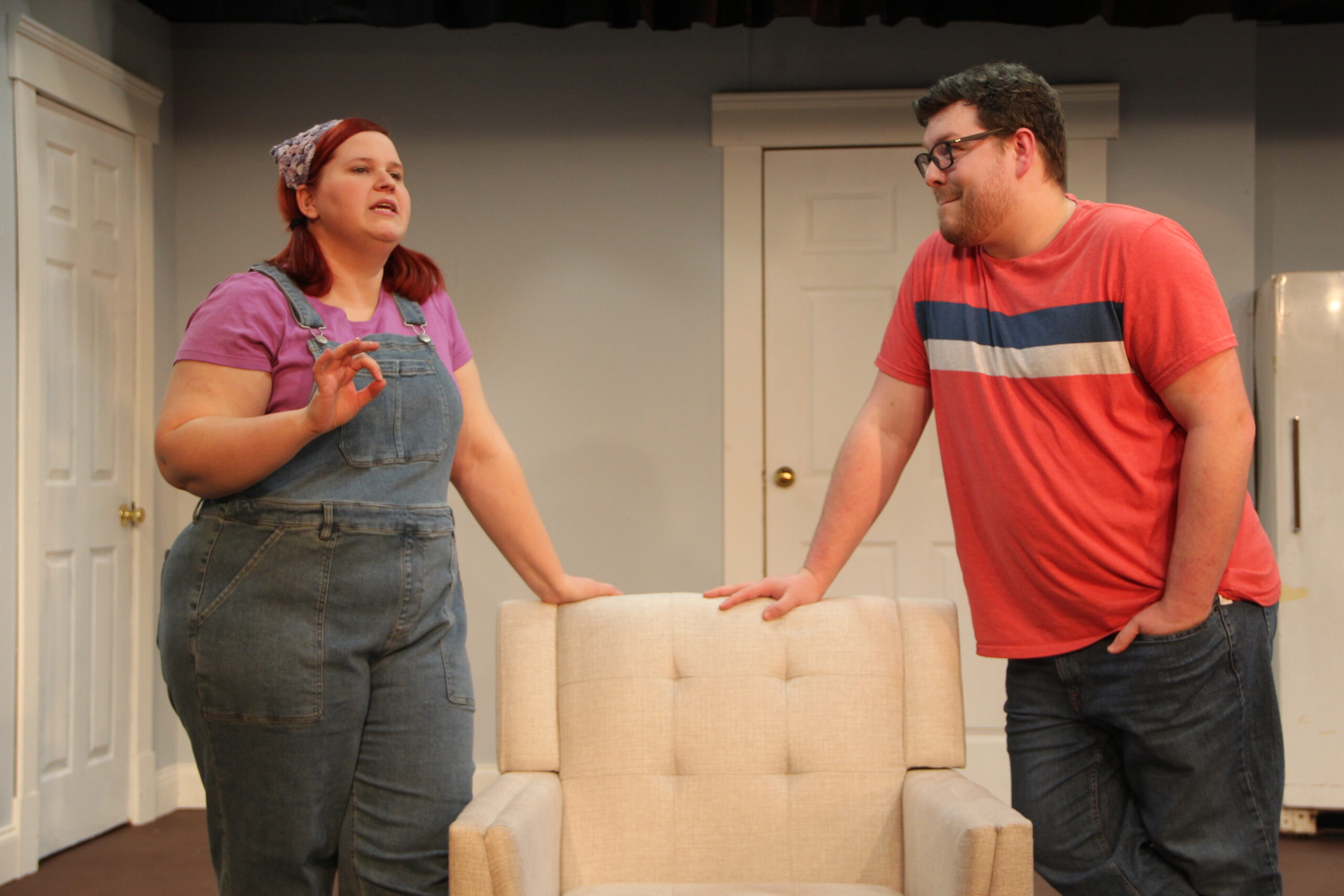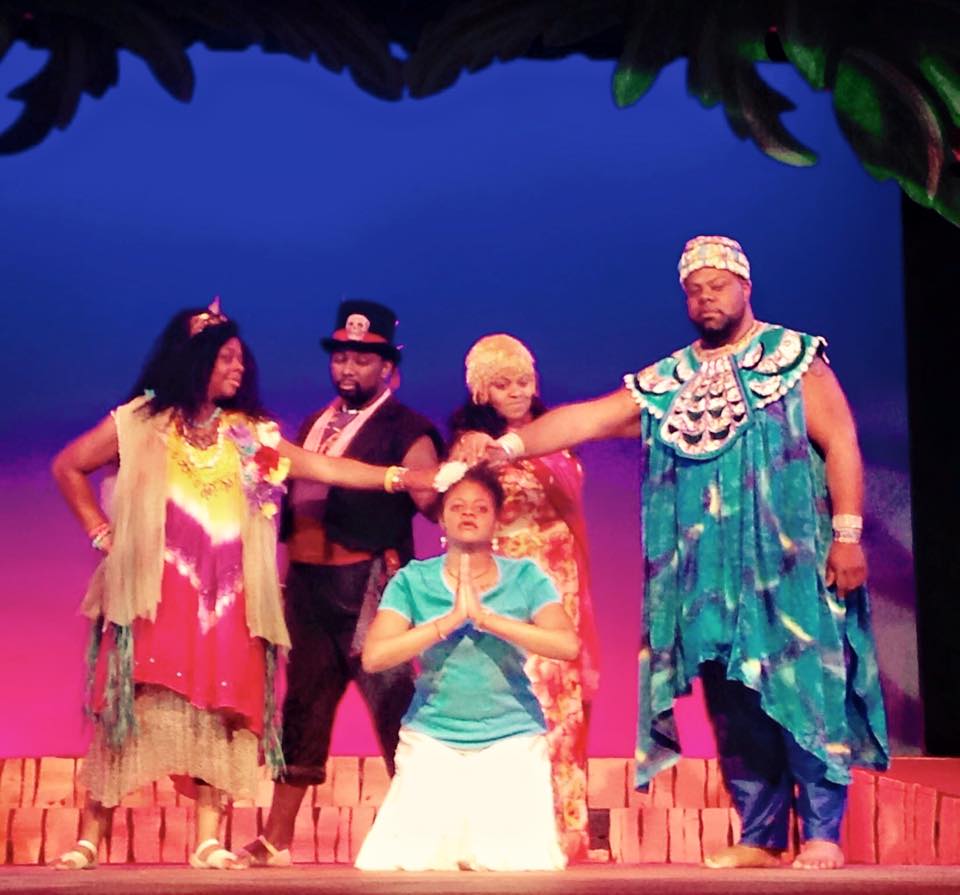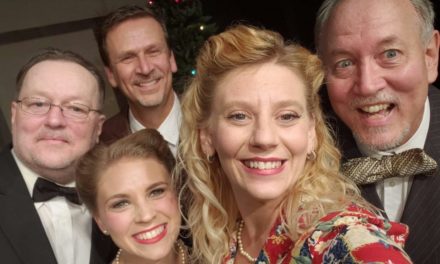Thoughts On The Current Status of Actors Theatre
Entire contents are copyright © 2023 by Joy Lanceta Coronel. All rights reserved.
Dear Louisville,
I write this letter to you as a fellow native Louisvillian and as a freelance artist who has worked alongside Actors Theatre of Louisville. I am reaching out to turn our collective eyes toward the gift that ATL has given this city and to acknowledge the opportunity to broaden our perspectives and engage with the community around us.
Let me begin by sharing the impetus for this letter, which began following my attendance at UNIVERSES Theater Ensemble’s Party People at ATL this past Spring. I was deeply moved by the show’s rhythmic, potent poetry coupled with its exploration of the complexities of civil resistance amongst varying identities, cultures, and generations. Upon exiting the Pamela Brown Auditorium, I couldn’t help but feel equal parts moved and driven to ensure everyone in this city could experience the same elixir of empathy, expanded cultural knowledge, and deep appreciation of art that I experienced. It was in those moments that I felt the need to share my thoughts about ATL with the broader community.
I was even further compelled to write this piece after seeing the announcement of ATL’s 2023-2024 season and feeling a sense of hope that these stories would expand representation. As a Filipino American Kentuckian, I had a disjointed sense of belonging growing up, as I never felt quite American, nor fully Filipino, nor fully Kentuckian – my familial roots did not feel deep enough in any of those cultures. After 18 years of growing up in Louisville, I moved to Cincinnati for college, then later, to New York City and London for my graduate and professional career in the arts. As many young families did in 2020 during the onset of the pandemic, my husband, three-month-old infant, and I fled New York for Louisville and later decided to relocate permanently. It is only in the last year that I have begun reacquainting myself with this city, seeking my place within its art scene.

Having emerged from over a decade working in larger, more cosmopolitan cities, my initial impression was that I would not find work as a theatre artist in Louisville. To my surprise, I found its arts scene lively and thriving. As I looked into local theatre communities, I remember being merely familiar with ATL’s work, but not fully conscious of it as a result of the company feeling mostly inaccessible growing up and, quite frankly, not geared toward audiences like me. Following an introduction to ATL’s staff through a mutual colleague, I was later asked to dialect coach Kate Hamill’s Dracula, directed by the brilliant Jennifer Pennington. In the rehearsal room, I witnessed a group of artists who felt in no way like a corporate institution and more like a group of grassroots artists seeking to tell a story. Perhaps it was the small nature of the company or more compellingly, the environment that was created and the shared values, but the process felt communal and intentional. I felt immediately welcomed and included.
The pandemic impacted artistic communities across the globe, and many institutions turned toward a more civic-minded approach to theatre-making by adding focus to educational outreach, coalition building, and local collaborations. Advocating for this approach, Michael Rohd, Artistic Director of Sojourn Theatre whose research focuses on civic theatre-making, argued in an article from the online journal HowlRound that theatres “…can radically alter our role in our communities if we employ [listening] with greater intentionality and generosity.” ATL is an excellent example of this, having its current moment of self-proclaimed Storytelling (r)Evolution and casting a wider net to those in the community. The company now shares stories through varying lenses, platforms, mediums, and genres, and is connecting to the community through various outreach initiatives and collaborations. They are reaching those who may not have historically interacted with the theatre, further establishing themselves in the Louisville community. These evolutions raise accessibility and set the foundations for a more sustainable structure. In ATL’s 2022 Impact Report, 73% of audiences who signed up for memberships were brand new to the theatre. In other words, ATL is now interacting with a new demographic of audience members, expanding viewership, and becoming more representative of Louisville as a whole.
Recent critics of ATL’s paradigm shift argue that the theatre has turned its back on some of the more traditional, well-loved productions from the past. However, ATL has recognized the needs of Louisvillians change over time. If art is a mirror held to society, theatre must evolve and respond to the state of our world, aiming to represent who we currently are. As such, it is necessary for ATL to evolve. Furthermore, evolution can impact communities on a much deeper level. According to Rohd,
“Producing new work does not have to only mean making new plays. And our new work practice can excel not just in the caliber of our expression but in the quality of our listening. If we can accomplish that, we model what civic life today desperately needs: a practice that places dialogue ahead of monologue, imagination at the heart of problem-solving, and listening as equal in value to expression.”
I now circle back to us, Louisvillians, and how we can be included in this artistic moment of growth. As we contemplate what kind of art and perspectives we are passing down to Louisville’s future, we must consider that we are now at an inflection point. Our city has endured major triumphs and losses, and even more so in the last three years. We have experienced the trauma of COVID-19, political upheaval, economic instability, and terroristic violence inflicted on our people. Louisville needs a place of empathy and community. Luckily, ATL has provided a gift to this city, for experiencing art can be the antidote to things that weigh heavily on our society.
By its very nature, theatre is a vehicle for healing and processing our life experiences. It allows audiences to take on varied perspectives and provides a space for critical judgment, self-reflection, and the practice of empathy. Remarkably, ATL upholds this notion by naming “the intersection of art and wellness” as one of their key impact goals, stating,
“Art heals on an individual and communal scale. From art therapy in hospitals to creative outlets for imprisoned populations to collective grieving through sharing stories, quantitative and qualitative data support the essential nature of the arts for our personal and public health. Actors Theatre leverages our expertise in art-based practices to support the full flourishing of our communities through productions, programs, and partnerships at the intersection of art and wellness.”
At this moment, we have the opportunity to explore diverse stories and celebrate all who compose this multifaceted and growing city. We can transport ourselves to the dramatic world of Shakespeare’s King John as embodied by femme, women, and non-binary actors, or to an Indian supermarket in Mrs. Krishnan’s Party. And if we need some laughs, we can find them inside The New Jerusalem Missionary Baptist Church in I AM DELIVERED’T. Those who love Dracula can witness the same epic story in a more dynamic, action-packed world. There is a chance to witness the love story of Richard and Mildred alongside interviews with mixed-heritage folx speaking about their own (contemporary) experience. Then there are always varied events, outreach programs, and community conversations available to attend.
The upcoming season is teeming with opportunities to engage. The bottom line is that, in spite of all our differences, and through our support of ATL and the arts, we can collectively advocate and maintain the idea that in our home of Louisville, Kentucky, theatre is for everyone.
Warmly,
Joy Lanceta Coronel
Joy Lanceta Coronel is a freelance speech and communication coach, teacher, researcher, and award-winning writer focused on topics related to accent work, identity, cultural sensitivity, and equitable coaching practices.
Initially based in New York City, Joy has worked as a coach to Broadway and Emmy-Award-winning actors across North America and the UK. She has taught at drama training programs internationally and has worked as a corporate coach to Fortune 500 companies





